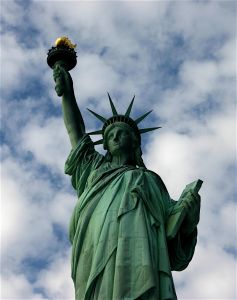By: Steven M. Franklin
Today, in Prasad v. Holder, the Fourth Circuit affirmed the Board of Immigration Appeals’ (BIA) order dismissing Mr. Kamleshwar Prasad’s adjustment of status claim under 8 U.S.C. § 1255(i)(1)(B)(ii) for failure to show prima facie eligibility for relief.
Petitioner Prasad Sought to Become Lawful Permanent Resident Under 8 U.S.C. § 1255(i)
Mr. Kamleshwar Prasad is a native citizen of India who is unlawfully present in the United States. Currently undergoing cancer treatment, Mr. Prasad sought to become a lawful permanent resident under Section 245(i) of the Immigration and Nationality Act, 8 U.S.C. § 1255(i). Under this exception, an unlawfully present alien may be eligible for an adjustment of status if he is the beneficiary of a labor-certification application filed on or before April 30, 2001.
Mr. Prasad was admitted to the U.S. around May 11, 2000, and his then-employer retained Mr. Earl S. David to assist Mr. Prasad with his labor-certification and visa petition. Unfortunately, Mr. David, failed to file the labor-certification application until July 13, 2001, two months after the statutory deadline. In fact, it appears that Mr. Prasad was not the only individual affected by Mr. David’s poor performance, as he was suspended in 2004, for fifteen months from the practice of law in New York and from practice before the BIA.
In 2007, assisted by different counsel, Mr. Prasad filed for an adjustment of status. The United States Citizenship and Immigration Services denied this request, determining that Mr. Prasad was not the beneficiary of a labor-certification application filed on or before April 30, 2001. Mr. Prasad filed a motion to reopen and reconsider, arguing that Mr. David’s ineffective assistance should serve as a basis for equitable tolling of the § 1255(i) deadline. However, the Immigration Judge denied this request, which was subsequently affirmed by the BIA.
Prasad Argues § 1255(i) Sunset Date Operates as a Statue of Limitation
The central issue in this case is whether § 1255(i) sunset date of April 30, 2001, operates as a Statute of Limitation (SOL) or Statute of Repose (SOR). If, as Mr. Prasad argues, § 1255(i) is an SOL, equitable tolling of the deadline may be appropriate in extraordinary circumstances. In this case, Mr. Prasad made every effort to comply with the April 30, deadline, but he was prevented from doing so due to Mr. David’s extraordinary deficiencies.
Fourth Circuit Concludes § 1255(i) Sunset Date Operates as a Statute of Repose
The Fourth Circuit concluded that the April 30, 2001, sunset date operates as an SOR, and thus may not be tolled. In reaching this decision, the Court looked at two differentiating factors between an SOL and an SOR.
First, the Court analyzed the fixed and specific time-certain date by which applications must be filed. SOL’s are typically tied to the date on which the claim accrues, which allows for different deadlines for different plaintiffs. SOR’s on the other hand, typically have a fixed deadline that is the same for everyone. § 1255(i)’s deadline of April 30, 2001, is thus a prime example of an SOR.
Second, an SOL operates as “a procedural time limit on the bringing of some extrinsic cause of action.” An SOR, however, “creates a substantive right in those protected to be free from liability after a legislatively determined period of time.” Here, § 1255(i) defines the substantive right, that an unlawfully admitted alien may adjust his or her status to a lawfully admitted alien for permanent residence, and the sunset date is simply one of the statutory conditions that must be met for adjustment.
The Court also looked to its previous decision in Suisa v. Holder, where the Fourth Circuit interpreted § 1255(i)’s sunset date as marking a “substantive endpoint on status-adjustment eligibility.” The Court also agreed with the Ninth Circuit in Balum-Chuc v. Mukasey, that had Congress wanted to extend the deadline beyond April 30, 2001, it could have easily done so. Its legislative history further supports this rationale, as Senator Kennedy recommended an extension for incomplete applications submitted before the sunset date, but failed to make any recommendation allowing the deadline to be waived or tolled.
The Fourth Circuit Affirms
Although recognizing that the enforcement of this deadline may lead to hardship in individual cases, especially in the case at hand, the Court does not have the authority to expand on that “carefully crafted and limited exception.” Thus, the Fourth Circuit affirmed the BIA’s order, dismissing Prasad’s appeal for failure to show prima facie eligibility for relief.


